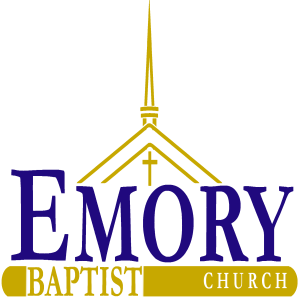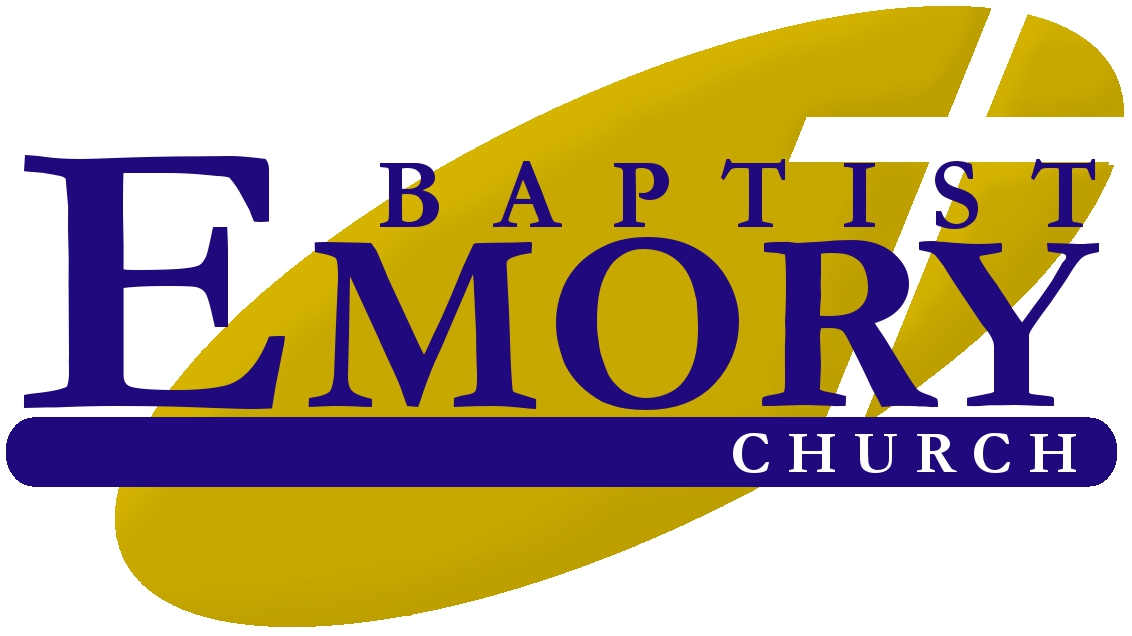Episodes

Sunday Jun 28, 2020
His Body and His Blood...
Sunday Jun 28, 2020
Sunday Jun 28, 2020
We are still on Thursday night, and we are still in Jerusalem with Jesus and His disciples celebrating the Passover meal. It is very late in the evening, and in Mark 14:22-26, Jesus transitioned from the Passover meal to the what we often call the Lord’s Supper.
That reference is from 1 Corinthians 11:20.
20 Therefore when you come together in one place, it is not to eat the Lord’s Supper.
The Book of Acts 2:42 calls it the breaking of bread.
42 And they continued steadfastly in the apostles’ doctrine and fellowship, in the breaking of bread, and in prayers.
1 Corinthians 10:16 calls it communion.
16 The cup of blessing which we bless, is it not the communion of the blood of Christ? The bread which we break, is it not the communion of the body of Christ?
Our more liturgical brothers and sisters use the name Eucharist, a word that we often translate as thanksgiving, from 1 Corinthians 11:24.
24 and when He had given thanks, He broke it and said, “Take, eat; this is My body which is broken for you; do this in remembrance of Me.”
Today’s message is entitled His Body and His Blood, and again, it is from Mark 14:22-26. However, this story can also be found in Matthew 26, Luke 22, and 1 Corinthians 11.
Before we look at today’s text, let me remind you of the elements of the Passover meal as we heard last week.
The Passover meal included:
- First cup of red wine mixed with water;
- Ceremonial washing of hands;
- Eating bitter herbs from a common bowl to remember Israel’s Egyptian captivity;
- Second cup of red wine mixed with water;
- Singing of Psalms 113-117 and explanation of the Passover;
- Eating of the Passover lamb and the unleavened bread;
- Third cup of red wine mixed with water.
We also saw last week from John 13 that it appears that Judas left the group after step 6 to put his plans of betrayal into motion, and then Jesus transitioned from the Passover meal to the Lord’s Supper with the remaining Eleven and the unleavened bread.
- The Ritual of the Lord’s Supper, Mark 14:22-26
This practice involved His body, His blood, and His Benediction.
How Christians understand these elements is what makes different denominations today. Our Roman Catholic friends hold to what is called Transubstantiation. When an authorized priest says, “This is my body,” the bread and subsequently the wine or the juice actually become or transform into the literal body and blood of Christ. Furthermore, for those who participate, they receive a dispensing of grace through this sacrament.
Why might they believe this? See John 6:53-56.
53 Then Jesus said to them, “Most assuredly, I say to you, unless you eat the flesh of the Son of Man and drink His blood, you have no life in you. 54 Whoever eats My flesh and drinks My blood has eternal life, and I will raise him up at the last day. 55 For My flesh is food indeed, and My blood is drink indeed. 56 He who eats My flesh and drinks My blood abides in Me, and I in him.
Obviously, we don’t interpret the words of Christ literally but figuratively. The main reason that we do that is because Jesus was still literally standing there when He spoke these words and after they ate. By the way, first-century non-Christians propagated the lie that followers of Christ were cannibals because they were aware of what Christ had said.
Our Lutheran friends hold to what is called Consubstantiation. This view says the bread and the wine contain the body and blood of the Lord, but the elements themselves are not substantively changed.
The rest of Protestant Christianity holds to some form of Symbolic or Spiritual Presence of Christ or Memorial View. We believe the bread and wine or juice are symbolic of the Lord’s body and blood and certainly Christ is spiritually present and partaking memorializes His death on the cross.
In verses 25-26, Jesus seems to be alluding to a future time when of God’s kingdom. We believe that is His millennial kingdom after His Second Coming. After singing Psalm 118, they left for the Mount of Olives.
- The Requirements for the Lord’s Supper: Salvation and Sanctification
Exodus 12:43-45, 43 And the Lord said to Moses and Aaron, “This is the ordinance of the Passover: No foreigner shall eat it. 44 But every man’s servant who is bought for money, when you have circumcised him, then he may eat it. 45 A sojourner and a hired servant shall not eat it.
Even though I have taken us back to the Old Testament, follow the logic. The Passover meal was not for anyone outside of the nation of Israel. It would have made no sense.
The same is true for the Lord’s Supper. It is for Believers only. Otherwise, it is illogical and irrelevant.
1 Corinthians 11:23-32, 23 For I received from the Lord that which I also delivered to you: that the Lord Jesus on the same night in which He was betrayed took bread; 24 and when He had given thanks, He broke it and said, “Take, eat; this is My body which is broken for you; do this in remembrance of Me.” 25 In the same manner He also took the cup after supper, saying, “This cup is the new covenant in My blood. This do, as often as you drink it, in remembrance of Me.” 26 For as often as you eat this bread and drink this cup, you proclaim the Lord’s death till He comes. 27 Therefore whoever eats this bread or drinks this cup of the Lord in an unworthy manner will be guilty of the body and blood of the Lord. 28 But let a man examine himself, and so let him eat of the bread and drink of the cup. 29 For he who eats and drinks in an unworthy manner eats and drinks judgment to himself, not discerning the Lord’s body. 30 For this reason many are weak and sick among you, and many sleep. 31 For if we would judge ourselves, we would not be judged. 32 But when we are judged, we are chastened by the Lord, that we may not be condemned with the world.
As for sanctification, it is the process of being made holy and more like Jesus. Therefore, it includes being in right standing with the Lord and with one another.
Furthermore, as Baptists, we believe that for a Christian to be in right standing with the Lord includes believer’s baptism. That is exactly why we require baptism for church membership, and this has been our Baptist practice and what we believe to biblical for over 400 years.
1646 London Baptist Confession of Faith, Article 39, Baptism is an ordinance of the New Testament, given by Christ, to be dispensed upon persons professing faith, or that are made disciples; who upon profession of faith, ought to be baptized, and after to partake of the Lord's Supper.
1758 Principles of Faith of the Sandy Creek Baptist Association, Article 10, That the church has no right to admit any but regular baptized church members to communion at the Lord's table.
1833 New Hampshire Confession of Faith, Article 14, Of Baptism and the Lord's Supper We believe that Christian Baptism is the immersion in water of a believer (72), into the name of the Father, and Son, and Holy Ghost (73); to show forth, in a solemn and beautiful emblem, our faith in the crucified, buried, and risen Savior, with its effect in our death to sin and resurrection to a new life (74); that it is prerequisite to the privileges of a Church relation; and to the Lord's Supper (75), in which the members of the Church, by the sacred use of bread and wine, are to commemorate together the dying love of Christ (76); preceded always by solemn self- examination (77).
1858 Abstract of Principles, Article 15, Baptism is an ordinance of the Lord Jesus, obligatory upon every believer, wherein he is immersed in water in the name of the Father, and of the Son, and of the Holy Spirit, as a sign of his fellowship with the death and resurrection of Christ, of remission of sins, and of his giving himself up to God, to live and walk in newness of life. It is prerequisite to church fellowship, and to participation in the Lord's Supper.
1925 Baptist Faith and Message, Article 15, Christian baptism is the immersion of a believer in water in the name of the Father, the Son and the Holy Spirit. The act is a symbol of our faith in a crucified, buried and risen Savior. It is prerequisite to the privileges of a church relation and to the Lord's Supper, in which the members of the church, by the use of bread and wine, commemorate the dying love of Christ.
So when I only invite only Christians, not just Baptists, who have participated in believer’s baptism by immersion, I am not trying to be rude or insensitive. I am following 400 years of Baptist history and all that Baptists have ever known.
Now, some will say that is Baptist history and tradition, and Baptist history is not the Bible. I agree that is possible. However, I am confident in saying that the first church knew nothing of unbaptized believers.
What about the thief on the cross? He certainly wasn’t baptized, but the church didn’t exist at that point, and he wasn’t baptized because of timing not because he refused.
Another item to consider is how can we as Baptists in good conscience look people in the eye and say that immersion is required for church membership but not for taking the Lord’s Supper? Isn’t that a double standard? Doesn’t that smack of hypocrisy?
Well, maybe then we shouldn’t require baptism for church membership? Well, are we really Baptist? And for some, why would you ever want to be a member of Baptist church if you disagree with what Baptists have believed since their formal beginning?
- The Rationale in taking the Lord’s Supper
Why do we take the Lord’s Supper at all?
First, we take the Lord’s Supper to renew our commitment to Christ and to one another.
1 Corinthians 10:17, 17 For we, though many, are one bread and one body; for we all partake of that one bread.
Second, we take the Lord’s Supper to give thanks.
1 Corinthians 11:24, 24 and when He had given thanks, He broke it and said, “Take, eat; this is My body which is broken for you; do this in remembrance of Me.”
Third, we take the Lord’s Supper to remember what Jesus did for us through His death on the cross.
1 Corinthians 11:24-25, 24 and when He had given thanks, He broke it and said, “Take, eat; this is My body which is broken for you; do this in remembrance of Me.” 25 In the same manner He also took the cup after supper, saying, “This cup is the new covenant in My blood. This do, as often as you drink it, in remembrance of Me.”
Fourth, we take the Lord’s Supper to proclaim the message of Christ.
1 Corinthians 11:26, 26 For as often as you eat this bread and drink this cup, you proclaim the Lord’s death till He comes.
Conclusion
Our invitation this morning is for anyone who is lost to call on the name of the Lord and be saved and be baptized. Maybe the Lord is leading some of you to recommit or rededicate your life or join this church. This invitation is for you.


No comments yet. Be the first to say something!